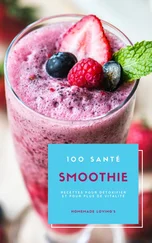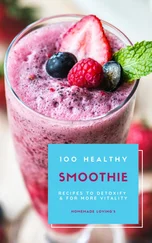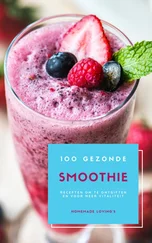Goodbye Sugar:
End sugar addiction and live sugar-free with the 14-day Challenge - Through sugar-free nutrition healthy and slim forever
Reproduction, translation, further processing or similar actions for commercial purposes as well as resale or other publications are not permitted without the written consent of the author.
Copyright © 2019 - HOMEMADE LOVING'S
All rights reserved.
Foreword Foreword First it is said that a certain food or food component is the reason why we get fat. Then again science finds out that it contains healthy ingredients and we are allowed to eat it. But it won't be long before it's back on the blacklist of fatteners - for reasons that no one really understands. This is no wonder, since such information comes from magazines and Facebook pages whose operators certainly have no degree in ecotrophology or training as dieticians. Nevertheless, it is precisely this contradictory and above all incomplete information that makes it very difficult for overweight people to change their diet and finally reach their feel-good weight. Fortunately, this has been changing for several years. The fact that there are so many great food bloggers on Facebook, Instagram and Co. who know how to make healthy food look and taste tasty, and also the fitness trend of recent years has created a greater awareness of healthy eating. This, in turn, has enabled us to study intensively the composition and components of our food and we now know what is inside and what does not belong on the plate. Whereas, for example, there used to be a great deal of uncertainty about artificial sweeteners such as aspartame, health-conscious eaters today are self-confident about such substances because they know everything they need to know about them: potentially carcinogenic, not even recognised as food by the body, and also without nutritional value, which is why it is stored directly in the next best fat cell. And when there is no fat cell left for safekeeping, a new one is created. Sweets are delicate in a healthy diet, but not only in this respect. The real problem, as we know today, is sugar. Do you eat sweets once in a while or even more regularly? Gummy bears, cakes, cookies ... that there is a lot of sugar in them is nothing new. But did you know that noodles, potatoes, rice or even supposedly healthy agave syrup also contain forms of sugar that, in larger quantities, don't exactly help lower numbers to appear on the scales? If you have to answer honestly with no, you belong to the majority, because in order to know that, you have to understand at least the basic features of what sugar is and what function it fulfils in the diet. In addition, you'll get a 14-day challenge in your hand, which you can use to get a feel for the sugar-free diet. This will teach you to develop a safe awareness of where sugar is and how to distinguish healthy from less meaningful sources and types of sugar. Then you can cook it yourself so that it tastes good and you do not add unnecessary sugar to your body. If you want to lose weight in the long run, this is a safe way - besides sufficient exercise and targeted training.
What is sugar? What is sugar? You know sugar as small white or brown crystals in 1 kg packaging from the supermarket. You might also be thinking of candy for tea, icing sugar or the coarser sugar used to decorate baked goods. Gelling sugar for jam, liquid glucose syrup for the confectionery trade or for homemade sweets and other types of sugar are all the same at the end of the day, and are the worst fatteners in society. But what exactly is sugar and what makes it so bad? The word "sugar" describes household sugar, i.e. the white and brown crystals in the package. What you add to your coffee or use for baking is mostly pure sucrose from a chemical point of view. This in turn means that it is a carbohydrate. There are three macronutrients, i.e. nutrients that we do not only need in homeopathic doses. These are proteins, carbohydrates and fat. Proteins are found in meat, for example, but also in many plant foods such as beans. We renew our cells from proteins and expand our muscles, which is why athletes also have to add protein in the form of shakes. Fat serves the body as a binding agent and is used by the body like oil in mechanical engineering. However, it also plays an important role in cell production. Carbohydrates are the energy suppliers, in a sense the "gasoline" of the body. So it doesn't work without it, but if you have too much energy, then it has to go somewhere. The body tries to store them temporarily, and you notice that by producing more fat cells you gain weight. Carbohydrates are contained in everything that contains sugar. But then again carbohydrates are not that simple. There are short-chain and long-chain carbohydrates. They bear this designation because of their appearance under the microscope. Compared to the long-chain variant, short-chain carbohydrates consist of less contiguous molecules. Their compounds are also not as strong as those of long-chain carbohydrates. The household sugar belongs to the short-chain carbohydrates. This means that this chemical compound is relatively easy to break down and it does not take long until the individual components are available for use, i.e. to supply energy. Long-chain carbohydrates present the body with greater challenges because it already uses more energy to get this chemical compound into a usable form at all. So sugar is a kind of turbo fuel. It gives the body a quickly available energy kick. However, this cannot last long, because the chemical compound can be broken down so quickly that the substances supplied by the food are immediately gone as soon as they have been eaten.
Sugar in food - why and how does it work? Sugar in food - why and how does it work? Sugar belongs to the carbohydrates and thus to the three macronutrients besides protein and fat. People cannot live completely without carbohydrates, because otherwise they lack fuel for vital functions. However, there are good and less good carbohydrates, which become good or bad mainly because they are not consumed in today's diet as nature originally intended for us. Sugar belongs to the short-chain carbohydrates. These provide a quickly available energy boost, because the body does not need long to decompose them into their individual parts. In this form they can be used as fuels and energy suppliers. This begins already in the mouth, because in the saliva enzymes are present, which accomplish the first splitting processes. Such carbohydrates are contained in foods containing sugar, but also in completely natural delicacies. Fructose, for example, is an underestimated supplier of such carbohydrates. In nature, of course, this form also has its right to exist. A life in the wild was exhausting for our ancestors - for example when they had to flee from hungry predators or fight against them. For this purpose there is quickly available energy in the food, because so we can quickly replenish our empty reserves. At least as important are the long-chain carbohydrates. The body already has to expend relevant amounts of energy in order to be able to utilize them at all. This means that they supply the body with less energy than they actually contain. That sounds suboptimal at first, because who wants to risk slipping into the energy minus? This may have been legitimate in the Stone Age. Nowadays our diet has changed, but the sugar metabolism has not. In the past it was rather difficult to get the short-chain carbohydrates, while the long-chain variant was often available. Fruits were our main source of sugar. Stone Age people would have been more than happy with a handful of gummi bears, because what we take for granted today did not exist in nature at that time. Today, on the other hand, we must ensure that we use wholemeal products or eat vegetables instead of fruit so that we do not have a surplus of readily available sugar - and thus an energy surplus that leads directly to the production of new fat cells and thus to obesity. So sugar isn't bad across the board. Like any poison, it's the dose that matters. Your body can't survive long without carbohydrate energy. But with too much sugar you inevitably gain weight, and that is the problem with our current diet.
Читать дальше












